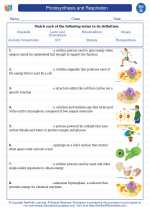Runoff: Explanation and Study Guide
Explanation
Runoff refers to the movement of water over the land's surface. It occurs when the soil is saturated and cannot absorb any more water, or when the land is impermeable due to factors such as urbanization, pavement, or compacted soil. Runoff can be in the form of streams, rivers, and other bodies of water, and it is a crucial part of the water cycle.
When runoff occurs, it can pick up pollutants and sediments from the land, leading to water pollution. Additionally, runoff plays a significant role in shaping the Earth's surface through erosion and the formation of features such as valleys and canyons.
Study Guide
- Causes of Runoff: Study the factors that contribute to runoff, such as precipitation, soil composition, slope of the land, and human activities like urban development.
- Effects of Runoff: Understand how runoff can lead to water pollution, erosion, and the formation of landforms. Research the impact of runoff on aquatic ecosystems and human communities.
- Preventing Runoff: Explore methods to mitigate the effects of runoff, including the use of green infrastructure, rain gardens, permeable pavement, and sustainable land management practices.
- Calculating Runoff: Learn about the mathematical models and equations used to calculate runoff, such as the Rational Method and the Soil Conservation Service Curve Number method.
- Human Influence on Runoff: Investigate how human activities, such as deforestation, agriculture, and urbanization, can alter natural runoff patterns and exacerbate the impacts of runoff.
By thoroughly understanding the causes, effects, and management of runoff, you can gain a deeper appreciation for the role of water in shaping the Earth's surface and the importance of sustainable water management practices.
Happy studying!
.◂Science Worksheets and Study Guides Seventh Grade. Photosynthesis and Respiration
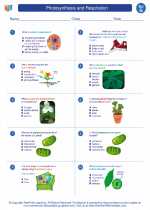
 Worksheet/Answer key
Worksheet/Answer key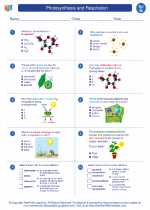
 Worksheet/Answer key
Worksheet/Answer key
 Vocabulary/Answer key
Vocabulary/Answer key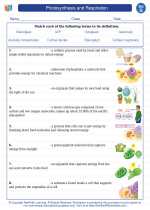
 Vocabulary/Answer key
Vocabulary/Answer key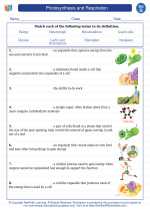
 Vocabulary/Answer key
Vocabulary/Answer key